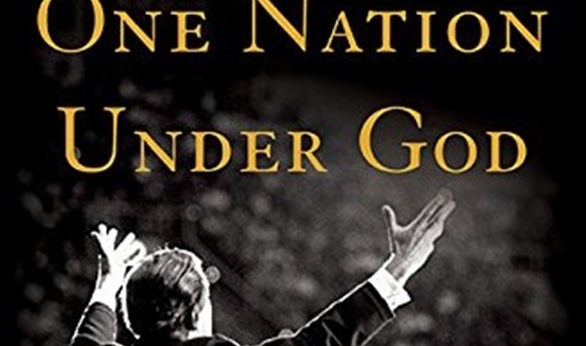In December 1940, as America was emerging from the Great Depression, more than 5,000 industrialists from across the nation made their yearly pilgrimage to the Waldorf-Astoria Hotel in New York City, convening for the annual meeting of the National Association of Manufacturers. The program promised an impressive slate of speakers: titans at General Motors, General Electric, Standard Oil, Mutual Life, and Sears, Roebuck; popular lecturers such as etiquette expert Emily Post and renowned philosopher-historian Will Durant; even FBI director J. Edgar Hoover. Tucked away near the end of the program was a name few knew initially, but one everyone would be talking about by the convention’s end: Reverend James W. Fifield Jr.
Handsome, tall, and somewhat gangly, the 41-year-old Congregationalist minister bore more than a passing resemblance to Jimmy Stewart. Addressing the crowd of business leaders, Fifield delivered a passionate defense of the American system of free enterprise and a withering assault on its perceived enemies in Franklin D. Roosevelt’s administration. Decrying the New Deal’s “encroachment upon our American freedoms,” the minister listed a litany of sins committed by the Democratic government, ranging from its devaluation of currency to its disrespect for the Supreme Court. Singling out the regulatory state for condemnation, he denounced “the multitude of federal agencies attached to the executive branch” and warned ominously of “the menace of autocracy approaching through bureaucracy.”
It all sounds familiar enough today, but Fifield’s audience of executives was stunned. Over the preceding decade, as America first descended into and then crawled its way out of the Great Depression, the these titans of industry had been told, time and time again, that they were to blame for the nation’s downfall. Fifield, in contrast, insisted that they were the source of its salvation.
They just needed to do one thing: Get religion.
Fifield told the industrialists that clergymen would be crucial in regaining the upper hand in their war with Roosevelt. As men of God, ministers could voice the same conservative complaints as business leaders, but without any suspicion that they were motivated solely by self-interest. They could push back against claims, made often by Roosevelt and his allies, that business had somehow sinned and the welfare state was doing God’s work. The assembled industrialists gave a rousing amen. “When he had finished,” a journalist noted, “rumors report that the N.A.M. applause could be heard in Hoboken.”

